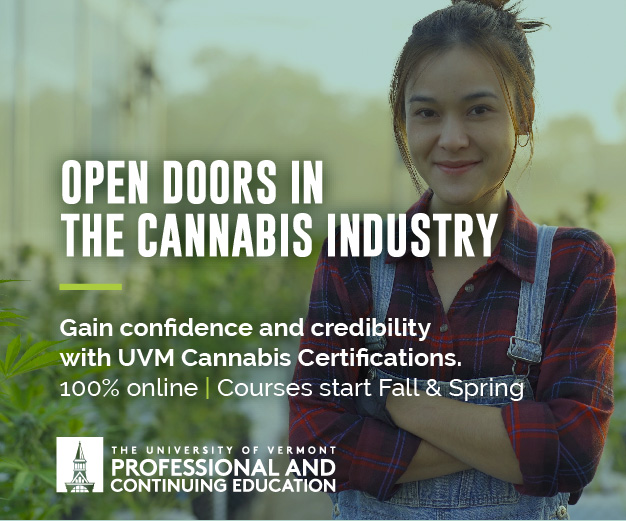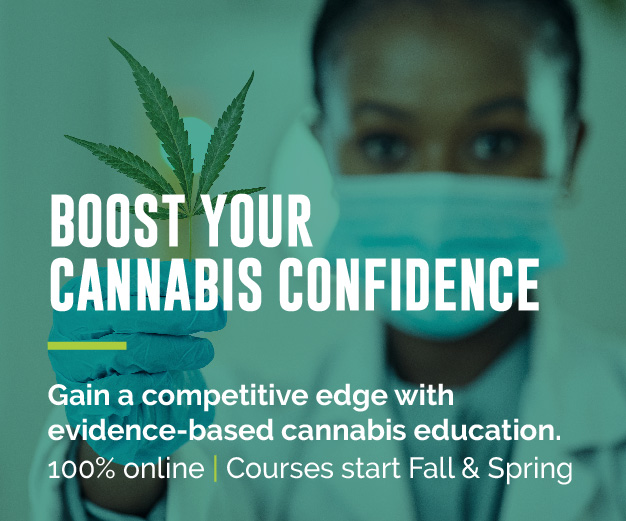The world of cannabis is in constant motion. There’s policy to debate, studies to conduct, startups to launch, and money to be made. With the dizzying pace of change, you may find it hard to keep up – and hard to discern credible cannabis news from internet clickbait.
In the fall of 2015, Jeremy Berke saw this as an opportunity. As a new reporter at Business Insider – and casual cannabis consumer – he decided that he could add some order to the chaos. After cutting his teeth by floating from the science desk to the finance desk and everywhere in between, Jeremy approached his editor with what seemed like a long-shot idea: launch a cannabis beat – and put him at the helm.
It was an ambitious pitch, one that would set him on the path to become the widely read and well-respected cannabis journalist he is today.
Recognizing his sharp sense for storytelling and talent for source-building, Jeremy’s editor gave him the green light. The cannabis beat was his.
Patience and Persistence: Building the Cannabis Beat from Scratch
Even if you’re a lifelong cannabis buff, you’ve likely encountered barriers to finding credible cannabis information. Until recently, in fact, cannabis education and science wasn’t easily accessible to most people in the U.S.
With no formal cannabis education to speak of, Jeremy quickly found that patience, grit, and strategic source-building would be essential to his success. “It takes a long time to step out in a new beat,” he explains. “As a journalist, you always go in with an open mind and ask people who are smarter than you questions.”
As his reporting started to take shape, Jeremy leaned on his personal experience with cannabis as an entry point to approach experts and build productive rapports. Working with a small team to produce a weekly cannabis newsletter, he honed his signature voice – striking a balance that conveys an affinity for the plant with a commitment to raising the bar for cannabis reporting.
“There’s a lot of reporting on cannabis that’s not very rigorous and robust,” he says. “A big part of my job is to take this seriously.”
The Cannabis Media Fellowship Opens a Door
Years passed. Jeremy was busy building his knowledge base and readership. And while a number of management changeovers at Business Insider put pressure on his workflow and team dynamic, he felt happy and secure in his role on the cannabis beat.
Then, in early 2022, he received an email about the University of Vermont Professional and Continuing Education Cannabis Media Fellowship that shook things up.
“I was excited to see the program,” says Jeremy, “and I raised my hand right away.”
Flexible Education to Accommodate Newsroom Demands
Was Jeremy a little unnerved about going back to school after eight years in the workforce? Sure. But he quickly found that the pace was manageable, the online, asynchronous course design was flexible, and the fact that his coursework was ungraded “took the pressure off,” he says.
As a working journalist who describes himself as disorganized, he found that implementing a few scheduling guardrails was enough to keep him on track. On days when he had coursework to complete, he set an alarm from 5:00 p.m. to 8:00 p.m. for dedicated study time. When the 5:00 p.m. to 8:00 p.m. window didn’t fit his schedule for the week, he took course lectures and videos on the road with him, tuning in from 30,000 feet on occasion.
“They made it as easy as possible to stay on top of things in ways that I think would be harder if there were an in-person requirement,” Jeremy says.
Building a Scientific Foundation – and Growing His Network – at UVM
While Jeremy had been writing about cannabis for years, his goal in the Cannabis Media Fellowship was to deepen his scientific understanding of the plant at the center of his storytelling.
Having studied environmental science as an undergraduate, he felt confident selecting the Fellowship’s pharmacology track. “The plant is fascinating, the science is fascinating,” he says, “and it’s really impossible to cover the business of cannabis, the policy of cannabis, without understanding the science. At least to the degree where you can spread the information – you don’t have to be a PhD by any means.”
As he was building his knowledge of plant biology, he was also soaking up lectures from UVM experts across disciplines. “Lawyers, biologists, and business school professionals,” he says, “came together to create knowledge about the field.”
“When you have an institution that has different departments all coming together to create knowledge, it was really heartening to see.”
“I was excited to see that there were smart people at venerable institutions like the University of Vermont who wanted to study this and disseminate quality information.”
While Jeremy had been out of school for years, it didn’t take him long to get back into the swing of things. In fact, his journalism training kicked in seamlessly as he built new relationships with professors and peers. “The same way I built sources at the beginning of my career in journalism, now there are people who… can help me filter information,” he says, describing the way in which his professors are just a call or email away.
Independent Cannabis Journalism in an Entrepreneurial Age
Jeremy always imagined his career would end up on an entrepreneurial path – and his UVM training gave him a helpful edge in launching Cultivated, his new solo venture.
“I think [the Cannabis Media Fellowship] made me a much sharper reporter because I can highlight problems and look at systems and evaluate them in ways I couldn’t before the course,” Jeremy says.
Currently operating as a twice-weekly newsletter and website, Cultivated covers cannabis from almost every imaginable angle, merging industry updates across science, research, business, finance, and policy all in one place. You don’t have to be a full-time industry insider to find your lane among Cultivated’s comprehensive coverage, either.
“My readers are everyone from budtenders at a dispensary all the way up to an executive at a publicly traded cannabis company,” Jeremy says. “I want the content to be accessible to people who may be interested in doing business within the cannabis industry, but don’t know much about it yet.”
As he looks toward what’s next for Cultivated, Jeremy knows one thing for sure: “I want the right kind of growth. I don’t want to grow at all costs.” Adding staff and establishing a multimedia presence are top of mind, but for the near term, Jeremy is satisfied operating as a solopreneur.
Besides, he has his hands full. In addition to running Cultivated, he’s currently pursuing an MBA at Columbia Business School. “Being at UVM last year, I realized I really like school and want to pursue it further,” he says.
Cannabis is one of the fastest-growing industries in the country. Find your footing on a new career track with UVM online cannabis education.






